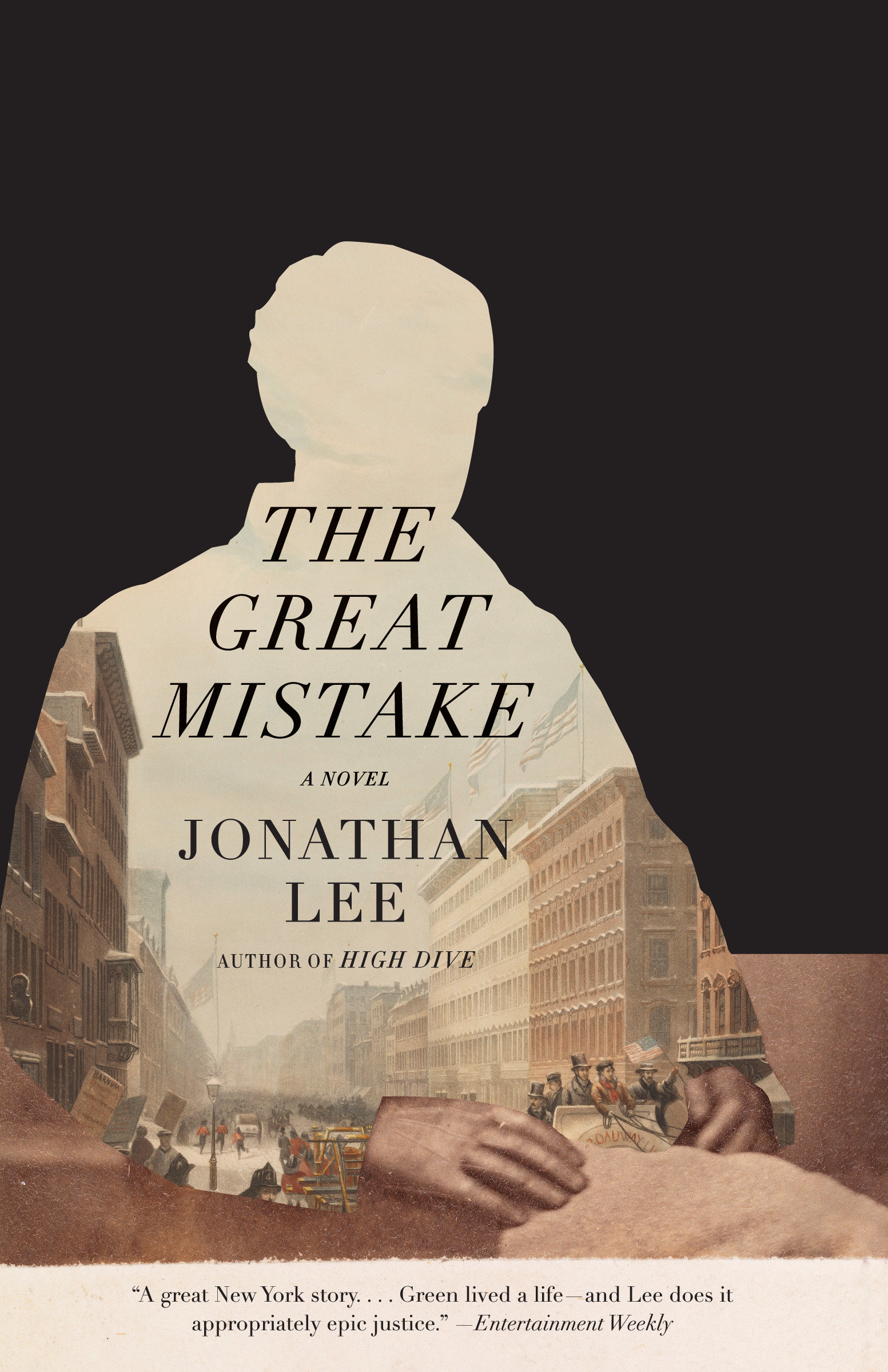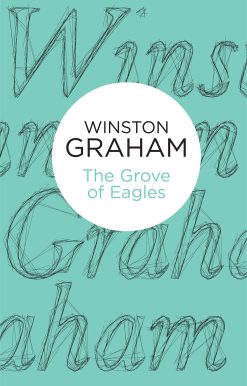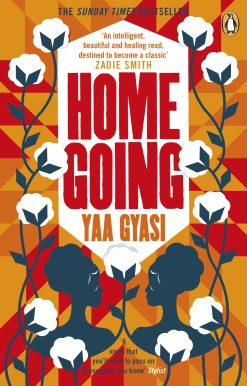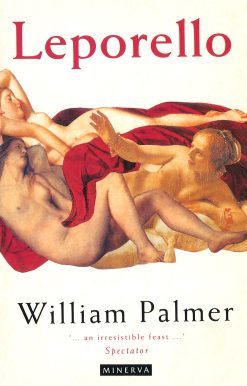The Great Mistake: A novel
14.00 JOD
Please allow 2 – 5 weeks for delivery of this item
Add to Gift RegistryDescription
An exultant novel of New York City at the turn of the twentieth century, about one man’s rise to fame and fortune, and his mysterious murder—“engrossing” (Wall Street Journal), “immersive” (The New Yorker), and “seriously entertaining” (The Sunday Times, London). Andrew Haswell Green is dead, shot at the venerable age of eighty-three, when he thought life could hold no more surprises. The killing—on Park Avenue in broad daylight, on Friday the thirteenth—shook the city.Born to a struggling farmer, Green was a self-made man without whom there would be no Central Park, no Metropolitan Museum of Art, no Museum of Natural History, no New York Public Library. But Green had a secret, a life locked within him that now, in the hour of his death, may finally break free.A work of tremendous depth and piercing emotion, The Great Mistake is the story of a city transformed, a murder that made a private man infamous, and a portrait of a singular individual who found the world closed off to him—yet enlarged it.
Additional information
| Weight | 1.17 kg |
|---|---|
| Dimensions | 1.63 × 13.6 × 2.25 cm |
| PubliCanadation City/Country | USA |
| Format | |
| language1 | |
| Pages | 304 |
| Publisher | |
| Year Published | 2022-5-17 |
| Imprint | |
| ISBN 10 | 0593081013 |
| About The Author | JONATHAN LEE is the author of three novels, most recently High Dive, which was a best book of the year in publications including The New York Times, The Guardian, The Wall Street Journal, The Washington Post, and San Francisco Chronicle. He is the editor-in-chief of indie publisher Catapult. He lives in New York. |
ONE OF THE BEST BOOKS OF THE YEAR: The Guardian, LitHub • ONE OF CRIMEREADS' BEST HISTORICAL NOVELS OF THE YEAR • A Best Book of Summer: Entertainment Weekly, Oprah Quarterly, Vulture, Town & Country, Refinery29“Moving . . . Subtle . . . Vibrant . . . Has precise emotional contours . . . The book’s accomplishment is less in making us ‘see’ Green, like some kind of historical hologram, than in making us inhabit him . . . Reminiscent of a nostalgic character in a William Maxwell novel.”—John Williams, New York Times “Finely drawn . . . Jonathan Lee’s intriguing novel has all the ingredients of a whodunit, but he’s more interested in the personal mysteries of the man who opened up the city ‘while keeping himself closed.’”—Alida Becker, New York Times Book Review“The Great Mistake is a great New York story…Green lived a life—and Lee does it appropriately epic justice.” —Entertainment Weekly“So polished and vivid…Lee has given his subject a prose memorial with a beating heart and superb mind, something worthy at last of a complicated man whose vision far exceeded his fame.” —Los Angeles Times“An immersive bildungsroman.” —The New Yorker“The best American novel of the year…A book of extraordinary intelligence and style…It’s as if Lee has distilled more than a century of American letters into a single book. There’s Fitzgerald, of course. There’s Hemingway in the muscular lyricism of the prose; Sherwood Anderson and Steinbeck in the beautifully drawn portraits of rural America; there’s the restraint of Henry James in the sinuous sentences.” —The Guardian“Engrossing . . . Genuinely impressive…Lee is an excellent sketcher of character, setter of scene, and weaver of research . . . None of Lee’s sentences is soulless. They brim with life and music and filigree-fine craft.” —The Wall Street Journal“A beautifully rendered fictional portrait of this most complex and contradictory of men . . . Lee intersperses fact and fiction to masterful effect . . . The Great Mistake is both a page-turning murder mystery and a taut psychological study of a genius lost to history.”—David Goodwillie, Interview“Impeccably written . . . Jonathan Lee writes engrossing novels about public tragedies and private dilemmas, fusing vivid character studies with understated humor and aphoristic turns of phrase. [His] latest is further confirmation that he’s among the best writers working today.” —Minneapolis Star Tribune “Seriously entertaining . . . Ingenious . . . I wish there were more novels like it.” —The Sunday Times (London)“Unforgettable…It would be easy to recommend The Great Mistake for its confident, well-researched, and impeccably crafted take on a singular individual who had so much to do with the creation of New York City as we know it. But you should really read this book for Lee’s exquisite prose, his poetic shadings of a life and a time in which so much was possible.” —Chicago Review of Books “Just finished The Great Mistake. It is, I think, the most underdiscussed novel of the summer, just gorgeous in every way. Melancholy. Witty. Unpretentiously philosophical. Catnip for mystery hounds, NYC history buffs, prose snobs. Devoured it in two sittings.”—Jennifer Senior, via Twitter“Jonathan Lee is so enviably talented it leaves the reader breathless. The Great Mistake is an unparalleled feat of elegance and craftsmanship. Lee’s 19th-century New York City is riveting, immersive, but best of all, it’s an immaculate blend of scale: he masters both the grand historic narratives and gritty intimate details. As envisioned by Lee, the life of Green feels emblematic of the New York City he built: ambitious, fraught, thrilling, and ultimately visionary.” —Stephanie Danler, author of Sweetbitter“Jonathan Lee’s wily, virtuosic, very beautiful new novel is an intimate portrait of a public man that also serves as an X-ray of America. The Great Mistake is a great novel of New York, in which the shaping of public space becomes inextricable from the loneliness, longing, and ferocious ambition of a single, damaged man.” —Garth Greenwell, author of What Belongs to You“Rich and riveting…A triumph of humane historical portraiture, and one of the finest and most pleasurable New York novels I have ever read.” —LitHub“Few writers working today have Jonathan Lee’s range or eye for detail. Fewer still are capable of roaming minds and histories with such bittersweet, richly detailed ease, or taking on with such profound depth all the messy, hilarious, heartbreaking humanity of a person, and a time, and indeed an entire city. The Great Mistake is a wonder and a delight.” —Téa Obreht, author of The Tiger’s Wife“A wonderful, compelling, finely-tuned and deeply loveable novel, with a central character who is all of those things too. Jonathan Lee has taken the bare facts of a nearly-forgotten life and turned them into a rich and unforgettable story, told with a relish for language and voice. Mr. Andrew Haswell Green now has permanent lodgings in my brain, and very welcome he is too.” —Jon McGregor, author of Reservoir 13“A big, delightful look at money, power, and the painstaking work of changing the world.”—Town & Country“An exceptional work of historical fiction about one of the key figures in the development of 19th-century New York City…A highly satisfying mix of mystery and character portrait, revealing the constrained heart beneath the public carapace.”—Kirkus Reviews (starred) “Audacious…Lee sustains a captivating strangeness in his depiction of the period.” —Publishers Weekly “The Great Mistake is a great novel of 19th-century New York and the meaning of success, which makes the quietest moments of its hero’s life as memorable as the bordellos and the murders. A magical escape from the 21st century that sent me back feeling wiser and more hopeful.” —Sandra Newman, author of The Heavens “Like Denis Johnson’s Train Dreams and John Williams’ Stoner, Jonathan Lee peels back a forgotten layer of history to investigate longing and loneliness in the shape of a single man. The Great Mistake joins the ranks of Sarah Perry’s novels, and Colm Tóibín’s The Master, in lighting up the past, recreating Old New York—like Francis Spufford’s Golden Hill—with an exuberance that transcends mere history. It is a remarkable book, a herculean construction that will prove lasting.” —Katy Simpson Smith, author of The Everlasting“A stunning new novel.” —The Times (London)“Captivating…Lee takes the murder as a jumping off point, diving into Green’s interior life with tremendous skill, telling an unforgettable story about the parallel construction of an identity and a metropolis.” —CrimeReads“The author takes us on quite a ride and his vivid writing never wavers . . . This mystery—and Green—will live with you for a long time. The character studies in this book are cleverly detailed, even wondrous.”—Mims Cushing, Florida Times-Union “A novel of longing and great beauty, sharply observed comedy and keen mystery . . . Lee tenderly explores Green’s life, which is almost as puzzling as his death . . . There is much to enjoy in the novel’s rich depiction of the city. Its greatest achievement, though, is its tactful evocation of how it might have felt to love in a way that cannot even be safely acknowledged to oneself.”—Sarah Ditum, Spectator “A heartfelt read that’s hard to put down . . . Profound . . . Engaging . . . Comical . . . It’s hard not to find pleasure in witnessing the excitement of New York in this book, as our real New York now reopens . . . The Great Mistake offers hope for change and growth within a city, but more importantly, within humanity.”—Carissa Chesanek, Brooklyn Rail“Lushly detailed…Vividly realized…Lee sparkle[s] as a novelist.” —Booklist “Give this entrancing story of an exceptional man to novel-reading fans of Erik Larson and those who enjoy a little mystery with their historical fiction.” —Library Journal“The Great Mistake entertains with its endless invention and its parallels to the personal and political challenges of contemporary society.” —Pittsburgh Post-Gazette“Hugely entertaining.” —The Independent (UK) “A stylish, finely wrought mashup of mystery and history.” —Daily Mail (UK) “Lush and memorable…Both a fully formed biopic and a deeply personal account…A moving tale of loss, hope, and accidental murder.” —The Big Issue (UK) |
|
| Excerpt From Book | 1STRANGERS' GATEThe last attempt on the life of Andrew Haswell Green took place on Park Avenue in 1903. News of his murder filled the front page of the New York Times—“Father of Greater New York” Shot in Front of His Home. The motive was offstage, unaccounted for. Speculation filled the Herald, the Tribune, the Sun. Some writers got excited by the victim’s fame or the five shots fired. Others stared straight-faced at the date of his death: Friday, November thirteenth. Citizens prone to long-necked dreams carried pocket pieces on unlucky days like these, rabbit’s feet and rusty screws, Pope Pius IX in a paperweight, the pit of a peach named Stump the World, items mute and immune to worry, charms to protect them from bedlam, but at the age of eighty-three Andrew had no time for fetishes. The things he trusted, late in life, were grass and trees and weeds, buildings and bridges made of stone, and after his absurd ending had faded from the news a marble bench was erected in his name in Central Park. This small memorial can still be found overlooking the open greenery of Fort Fish. On Tuesday mornings a person with cleaning supplies arrives to remove last week’s bird shit with a brush.On Andrew’s fateful final morning, as the Times would describe it, he woke early and spent a long time preparing to move. Then he descended sixteen stairs with care and sat down at his table of Massachusetts maple under an electric-only chandelier. Park Avenue was waking beyond the window. Dust rose and fell behind passing carts. Wheels creaked as they carried Friday loads across the cobbles. Coffee made with thirty-six beans was best—this was his conclusion after decades of private research—and he sipped steadily from his favorite cup, painted the yellow of elm leaves in fall, until Mrs. Bray came in with breakfast.How did you sleep? she asked.Like the dead, he said.They shared the smile they always shared, then together lifted knives and forks. His housekeeper was a sprightly seventy-nine-year-old, her once-fiery Irish curls now resembling coiled metal. Jokes about his advancing years were usual between them, and she prided herself on being skilled in the art of foretelling misfortunes—had in fact told him several times in recent years that jealous gods were watching his rise to fame and might soon begin searching for a flaw. But on Friday the thirteenth, a few hours before she was to witness his murder, Mrs. Bray voiced no warnings over their omelets. As she would later explain to Acting Captain Daly of the East Thirty-Fifth Street police station, an officer itching for an advancement to Actual, her parting words to her employer that morning were merely that his full white beard had become unruly of late, that a visit to the barber this week was essential, and that she expected him back at the house today by one thirty at the latest, preferably smelling of witch hazel and hair oil, for the recent trend in this city toward emancipation from lunch would not hold in a man of his age.Hearing all this, Andrew smiled and nodded, then did the awkward dance of getting his greatcoat onto his aching body. He hated going to the barber. A friend of his had died last year of an exploded heart while listening to the scraping of a neighbor’s jowls. Didn’t sound like a good way to go.He rinsed his cup out in the sink, then traveled to his office near City Hall, where he remained until one o’clock. Several tasks were accomplished in a neat four hours at his desk: making plans to honor Mary Lindley Murray with a plaque; responding to idiotic correspondence from politicians whose principal wish this week was that the Statue of Liberty, her complexion seasick, should be made brown as a penny again; and imagining a route for the new subway cars, large and copper-bottomed, vestibuled, to be carried on floats up the Harlem River, the kind of gleaming image that recedes to leave the rest of your day looking ordinary, ordinary, ordinary.He walked out into the bustle of Broadway and took a moment to catch his breath. The Herald would describe the impending crime as occurring on one of those well-cut November afternoons when the sun shines bright and the wind blows cold, when it is fall in the light and winter in the shade. The Sun would maintain that the skies were darkly overcast. The Brooklyn Daily Eagle would stand entirely alone in claiming it was raining.In this unreliable weather Andrew rode the Fourth Avenue streetcar uptown, as would later be recorded in the police report, with a look of amused determination on his face, the sharp features that made his moods look worse than they were, his white beard flickering in the wind as he went. He loved the press of cold air against his face. The way it seemed to tighten the skin. Only the skyline upset him as he moved through the city. The showy mess of buildings of different heights which stood, he felt, in increasingly incoherent argument with one another.He was on track to meet Mrs. Bray’s one thirty lunch curfew as he alighted at the Thirty-Eighth Street stop at twenty minutes past the hour. Succeeded in stepping around a stinking puddle formed by the fishmonger’s discarded ice. A particular pleasure Fridays brought him was the prospect of freshness—the week ahead did not yet contain any mistakes!—but why did every halibut seller in this city seem to share the impression New Yorkers had no sense of smell? Andrew looked up. Could see Mr. Hepiner now on the steps of his shop. An amphibian figure forever rooted in his little rubber boots, clutching that fishy bucket as if it contained the nation.Oh, hello! Hepiner said, waving.But Andrew did not wave back. There are certain grudges that are every bit as irrational as they are uplifting. A person must protect them at all costs, especially in old age.He was eager now to be at home, in silence. To eat lunch, in silence. To read his new book, The Literary Guillotine, a record of the Literary Emergency Court, presided over by Mark Twain, within which execution was duly done upon the most overrated authors of the day, in silence. He saw on the stretch of sidewalk ahead a destroyed newspaper page, accompanied yet again by a constellation of chestnut shells (who exactly was this chestnut tosser?) and he stooped down now—ah—to gather all these items up, then crushed them carefully into his leftmost coat pocket, the one he’d asked his tailor to line with easily cleanable material designed with this particular purpose in mind. Tidying the streets, the ritual of it, gave him comfort. But there was never less trash. Each day brought more.Those who saw him pausing to pick up those chestnut shells on this final journey would soon be cast as witnesses. They would decide he looked tired, that his back was hurting, that his character of late could be glimpsed in his gait—awkward, listing, the right hand dropping low as the foot beneath it fell, an old man who always appeared to be trying to catch objects falling from his grasp. And he did feel some of their eyes upon him. Felt embarrassed to be recognized like this every day, but also grateful to be seen, for he feared of late that he was fading away, that President Roosevelt was taking longer and longer to reply to his letters. There had been talk last year of renaming a great bridge or building in his honor, but he was concerned he had burned such plans down by being curmudgeonly instead of ingratiating, and making comments to politicians which only he found funny. That unwise remark, for example, about Mayor Low’s mustache looking like it had crawled onto his top lip in the search for a warm place to die.A few minutes before the confrontation that would kill him, he walked north along Park Avenue without the aid of the cane Mrs. Bray always tried to make him take, past the usual butcher selling crimson cuts of beef and the tailor in his window making pants to measure, and past the candy store and the adjoining dental practice and the shady red-and-white awning they shared, and crossed the street in a shadow cast by the Murray Hill Hotel, its Cape Ann granite and Philadelphia pressed brick, its Corinthian columns carved with festoons of foliage, and looked at his home, number 91, and wondered what horrors Mrs. Bray had cooked up. He only hoped it would not be Hepiner’s halibut again. She tortured him with this, her insistence on fish. She felt it was good for his knees and his eyes, for the thinning soles of his feet, for the creak in his joints in the morning—but what of a man’s morale? At the age of eighty-three he had the self-awareness necessary to be patient with other people, but not always the facility to disguise the effort.He loved this city. He hated it. It was a cathedral of possibilities, it would never settle down, it might remember him or it might forget him, there was a sense of no control, and for some reason he hesitated now, thinking city thoughts or lunch thoughts or other thoughts entirely, standing with his left hand settled upon the little iron railing which ran along the front of his home, and because of this hesitation, and a thousand other factors, a raw sprawl of coincidences and missteps and mistakes, a measure of bad luck and a degree of design, he would soon be lying on the ground with his face to the sky, sprawled and embarrassed, twitching, well on his way to becoming, in the words of one cab driver across the street, dead as a tent-peg. Or in the formulation of Mr. Anton the florist, a man who claimed to love nature despite what it had done to his face, dead as a herring. As dead as a sightless eye. As dead as a soulless sentence. As dead as a doornail, or a cliché, or a lucky rabbit’s foot, or the pit of a peach named Stump the World. As lifeless as all the newspapers that would bear his name in the morning. |
Only logged in customers who have purchased this product may leave a review.






Reviews
There are no reviews yet.